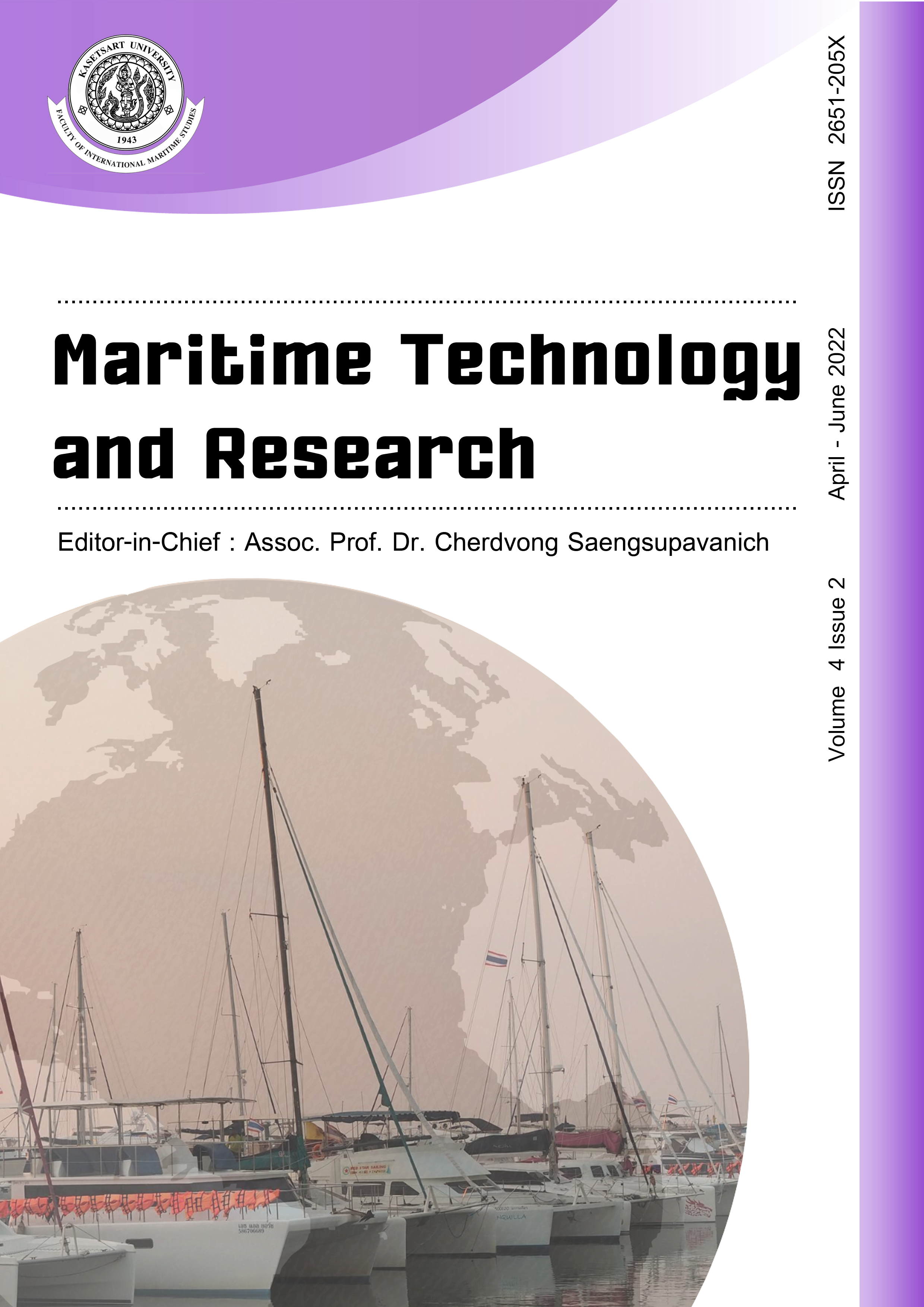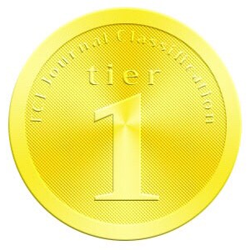Dominant constraints to the effective use of oily-water separator (OWS) in the control of ship-based oil pollution in West African waters
DOI:
https://doi.org/10.33175/mtr.2022.253937Keywords:
Dominant factors, Effective use, Oily water, Separator, Technology, PollutionAbstract
The International Regulations for the Prevention of Marine Pollution from ships (MARPOL 73/78) provided for the deployment of the oily-water separator (OWS) technology for the prevention of ship-based oily-water pollution in the marine ecosystem. Previous studies on the efficiency and effectiveness of the use of the OWS technology shows about 40 % failure rates and ineffective use; while also identifying a multiplicity of correlated factors constraining the effectiveness of the use of the technology onboard. To overcome the constraints posed by the identified factors to the effective use of the OWS technology requires a systems approach, which demands the determination of the dominant and significant factors constraining most, the effective use of the technology and prioritizing the elimination of the significant factors. The study used a survey design approach, employing primary data and the principal component factor analysis to determine the existence of about five principal factors, significantly constraining the effective use of the technology by ship operators in the West African Waters. The policy implications were discussed and recommendations for effective use of the technology proffered.
------------------------------------------------------------------------------
Cite this article: Nwokedi, T.C., Onwuegbchunam, D.E., Ejem, E.A., Toochukwu, T.C. (2022). Dominant constraints to the effective use of oily-water separator (OWS) in the control of ship-based oil pollution in West African waters. Maritime Technology and Research, 4(2), 253937. https://doi.org/10.33175/mtr.2022.253937
------------------------------------------------------------------------------
References
Arpit, S. (2019). Oily water separator construction working and dismantling. Retrieved from http//:www.shipfever.com
Abuja MoU. (2015). The annual report of abuja memorandum of understanding on port states control. Retrieved from http//www.abujamou.org
Arvanitis, S., & Loukis, E. N. (2009). Information and communication technologies, human capital, workplace organization and labour productivity: A comparative study based on firm-level data for Greece and Switzerland. Information Economics and Policy, 21(1), 43-61. https://doi.org/10.1016/j.infoecopol.2008.09.002
Barns-Dabban, H., Koppen, K. V., & Mol, A. (2017). Environmental reform of west and central Africa ports: The influence of colonial legacies. Maritime Policy Management, 44(5), 565-583. https://doi.org/10.1080/03088839.2017.1299236
Berger, H., Horvat, I., & Simongáti, G. (2014). Ship waste management along the Danube: The way towards an international Danube ship waste convention. Waste Management and the Environment, 180, 53-64. http://dx.doi.org/10.2495/WM140051
Bucharest Convention. (1992). The convention on the protection of the black sea against pollution. Bucharest, Romania.
Carpenter, A. (2005). The reduction of ship-generated waste in the North Sea: A contemporary analysis. Unpublished Ph.D. Thesis, University of Leeds, Leeds, UK.
Cyril, T. (2020). Study on the application of information technology in the prevention of ship-based oil pollution: The case oily-water monitoring system (OWS). A Thesis Submitted to the Department of Maritime Management Technology, Federal University of Technology, Owerri, Nigeria.
Cheng, L. C., & Grimm, C. M. (2006). The application of empirical strategic management research to supply chain management. Journal of Business Logistics, 27(1), 1-55. https://doi.org/10.1002/j.2158-1592.2006.tb00240.x
Da Silveira, G. J. C. (2002). Improvement trajectories in operations and technology management: Concept, process and current issues. Technology Analysis and Strategic Management, 14(2): 227-240. http://dx.doi.org/10.1080/09537320220133884
Elenwo, E. I., & Akankali, J. A. (2015). The effects of marine pollution on Nigerian coastal resources. Journal of Sustainable Development Studies, 8(1), 209-224.
Helen, S., Bloor, M., Baker, S., & Dahlgren, K. (2016). Greener shipping? A consideration of the Issues Associated with the introduction of emission control areas. Maritime Policy Management, 43(3), 295-308. https://doi.org/10.1080/03088839.2015.1040862
Helper, S., & Sako, M. (2010). Management innovation in supply chain: Appreciating chandler in the twenty-first century. Industrial and Corporate Chang, 19(2), 399-429. http://dx.doi.org/10.1093/icc/dtq012
Hal, A. (2017). Factors affecting Bilge water properties and oily water separator system performance. MYCELX Technologies Incorporated.
Hendrick, F., & Van, H. (2017). Initial recommendations for Bilge oily water separator system design and operation. Retrieved from http//www.martnottaway.com
Knudsen, F. (2009). Paperwork at the service of safety? Workers’ reluctance against written procedures exemplified by the concept of ‘Seamanship’. Safety Science, 47, 295-303. http://dx.doi.org/10.1016/j.ssci.2008.04.004
Liu, N., & Maes, F. (2011). Prevention of vessel-source marine pollution: A note on the challenges and prospects for Chinese practice under international law. Ocean Development International Law, 42(4), 356-367. https://doi.org/10.1080/00908320.2011.619373
Mohit, S. (2019). Operating oily water separator on ships. Retrieved from http//:www.marineinsight.com
Meiling H., Jin Z., Wen C., Jiahao C., & Gongfu Z. (2019). Research progress and prospects of marine oily wastewater treatment: A review. Water, 11(12), 2517. https://doi.org/10.3390/w11122517
Stuart, W. (2018). Types and operations of oily water separator. Retrieved from http//: www.pewe-usa.com
Szepes, M. (2013). MARPOL 73/78: The challenges of regulating vessel-source oil pollution. Manchester Student Law Review, 2, 73-109.
The International Maritime Organization. (2011). International shipping facts and figures-information resources on trade, safety, security, environment. IMO Maritime Knowledge Centre, London.
UNEP. (2011). Marine and coastal ecosystem service: Valuation methods and their application (pp. 1-46). UNEP - WCMC Biodiversity Series No. 33.
Downloads
Published
Issue
Section
License
Copyright (c) 2021 Maritime Technology and Research

This work is licensed under a Creative Commons Attribution-NonCommercial-NoDerivatives 4.0 International License.
Copyright: CC BY-NC-ND 4.0








